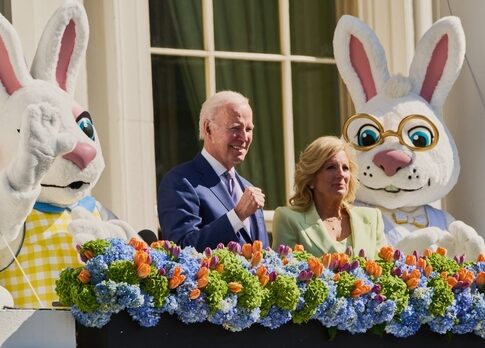In a startling revelation, recent data shows that Catholic organizations received staggering financial support during President Biden’s tenure. This has sparked debates about the potential influence on U.S. bishops’ political endorsements. How does this funding relate to the church’s stance on immigration?
Biden’s Unprecedented Financial Support to Catholic Organizations
The Biden administration has allocated nearly $2.9 billion in immigration-related funding to Catholic NGOs over four years. This amount is more than triple what was provided during Trump’s first term and almost double the amount during Obama’s eight years in office.
Since 2009, Catholic NGOs have received a total of $5.2 billion for immigration services, with over half of this amount awarded in the past four years alone. The primary recipients of this federal funding are Catholic Charities and the United States Conference of Catholic Bishops (USCCB).
2.9 BILLION Reasons U.S. Bishops Loved Biden But Hate Trump
READ: https://t.co/OsVJjAhlta pic.twitter.com/FwtlN5kZNt
— The Gateway Pundit (@gatewaypundit) January 27, 2025
The Controversial Silence of Catholic Bishops
Many Catholics are perplexed by the lack of condemnation from Catholic bishops regarding Joe Biden’s policies, which some view as anti-Catholic. Despite Canon 915, which prohibits Catholics in grave sin from receiving Holy Communion, bishops have allowed Biden to partake.
The silence of bishops on Biden’s policies, contrasted with their criticism of Trump, particularly on immigration issues, has led to speculation about financial motives. Some argue that the substantial increase in federal funding under Biden’s administration may be influencing the bishops’ political stances.
“The Biden administration granted Catholic NGOs nearly $2.9 billion in immigration-related funding over the past four years.”https://t.co/B2fHDg4EM2
— Lepanto Institute (@LepantoInst) January 24, 2025
Financial Implications and Ethical Concerns
The U.S. Catholic Church has paid over $5 billion for sex abuse scandal settlements, not including legal fees. This financial burden may explain the Church’s eagerness for federal funding, potentially compromising its independence in political matters.
The top federal programs providing funding are related to refugee and entrant assistance, aligning with the Church’s vocal support for lenient immigration policies. This alignment raises questions about the interplay between financial interests and religious principles in shaping political endorsements.


